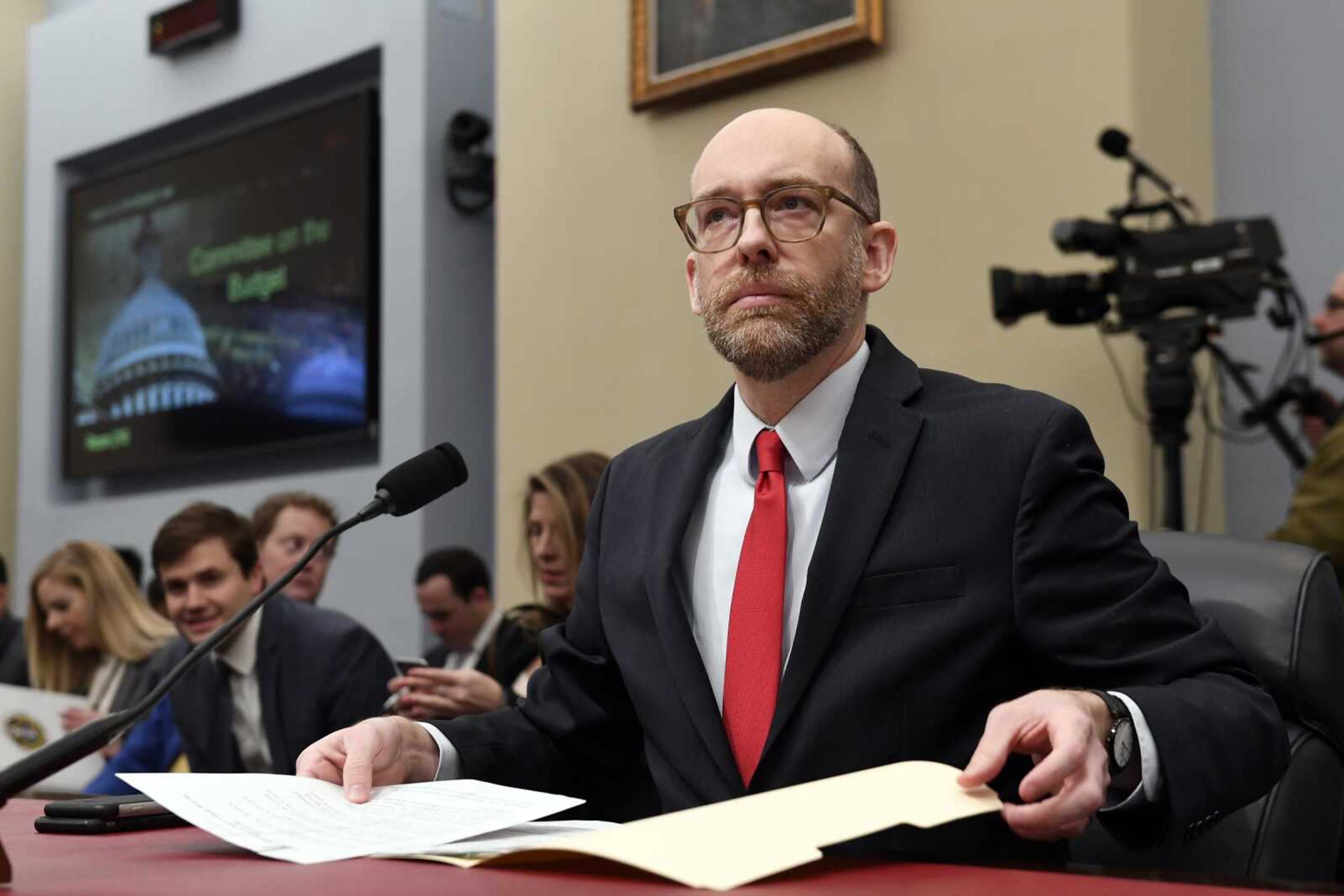Trump budget chief defends plan, says deficits will improve
WASHINGTON -- The White House's top budget official acknowledged Tuesday the federal deficit is ballooning to $1.1 trillion alongside the Republican tax plan but vowed the fiscal picture would improve as a result of projected economic growth. Russ Vought, acting director of the Office of Management and Budget, was grilled by the House Budget Committee about the high deficits and deep spending cuts in President Donald Trump's proposed $4.7 trillion budget...
WASHINGTON -- The White House's top budget official acknowledged Tuesday the federal deficit is ballooning to $1.1 trillion alongside the Republican tax plan but vowed the fiscal picture would improve as a result of projected economic growth.
Russ Vought, acting director of the Office of Management and Budget, was grilled by the House Budget Committee about the high deficits and deep spending cuts in President Donald Trump's proposed $4.7 trillion budget.
Vought acknowledge the tax cut had contributed to higher deficits, but he praised the corporate rate reduction central to "MAGAnomics" -- the administration's economic plan coined from the president's "Make America Great Again" campaign slogan.
"Deficits have certainly worsened over the first two years, but over 10 years we believe that deficits will improve," Vought told the committee. "We believe that the corporate tax cuts are very, very important to our economic growth numbers."
The Democratic chairman of the Budget panel, Rep. John Yarmuth of Kentucky, opened the hearing calling Trump's proposed $2.7 trillion in spending cuts to health care, education and food assistance "extreme to a level that is malicious, a level that is intended to do harm."
Yarmuth said it's "a harsh budget that abandoned working Americans and families."
Democratic Rep. Seth Moulton of Massachusetts noted Trump promised to wipe out deficits in eight years as he ran for president in 2016. Instead, deficits have risen nearly $500 billion since Barack Obama left office.
Moulton asked what the deficit was projected to be in 2024.
"We will still be looking at $1 trillion deficits," Vought said.
Treasury Department figures show a 77 percent spike in the deficit over the first four months of the current budget year, driven by falling revenues and steady growth in spending.
Trump's 2017 tax cut bears much of the blame, along with sharp increases in spending for both the Pentagon and domestic agencies and the growing federal retirement costs of the baby boom generation. Promises the tax cut would stir so much economic growth it would mostly pay for itself have proved wrong.
Presidential budgets tend to be seen as aspirational blueprints, rarely becoming enacted policy, and Trump's proposal for the new fiscal year, which begins Oct. 1, sets up a showdown with Congress over priorities, especially as he renews his push for money to build the U.S-Mexico border wall.
The deficit is projected to hit $1.1 trillion in the 2020 fiscal year, the highest in a decade. The administration is counting on robust growth, including from the Republican tax cuts -- which Trump wants to make permanent -- to push down the red ink. Some economists, though, say the bump from the tax cuts is waning, and they project slower economic expansion in coming years. The national debt is $22 trillion.
Even with his own projections, Trump's budget would not come into balance for a decade and a half, rather than the traditional hope of balancing in 10.
Titled "A Budget for a Better America: Promises Kept. Taxpayers First," Trump's was panned by some fiscal watchdogs as more piling on of debt by Trump with no course correction in sight.
Maya MacGuineas, president of the Committee for a Responsible Federal Budget, said Trump "relies on far too many accounting gimmicks and fantasy assumptions and puts forward far too few actual solutions." She warned the debt load will lead to slower income growth and stalled opportunities for Americans.
The budget proposes increasing defense spending to $750 billion -- and building the new Space Force as a military branch -- while reducing nondefense accounts by 5 percent, with cuts recommended to economic safety-net programs used by many Americans. The $2.7 trillion in proposed reductions over the decade is higher than any administration in history, they say.
Connect with the Southeast Missourian Newsroom:
For corrections to this story or other insights for the editor, click here. To submit a letter to the editor, click here. To learn about the Southeast Missourian’s AI Policy, click here.










